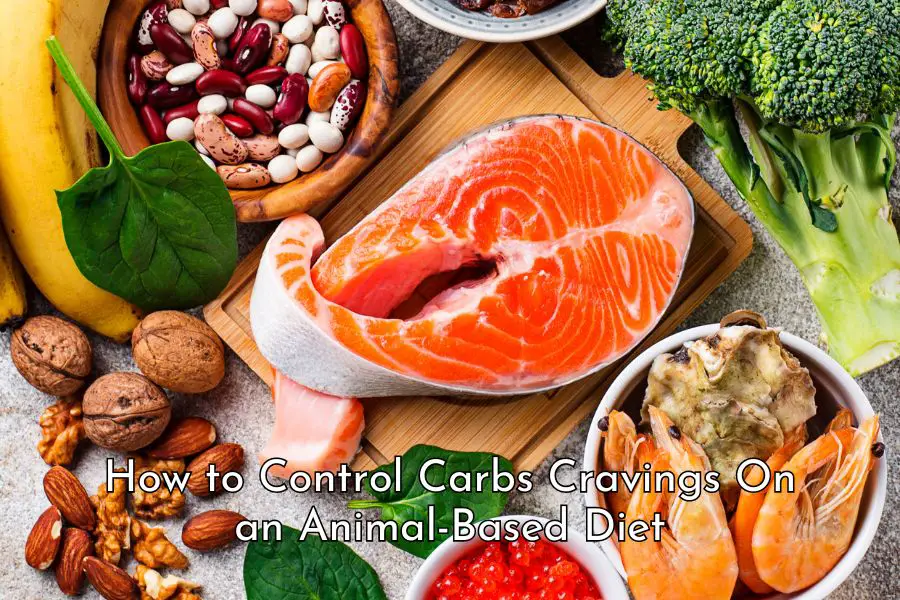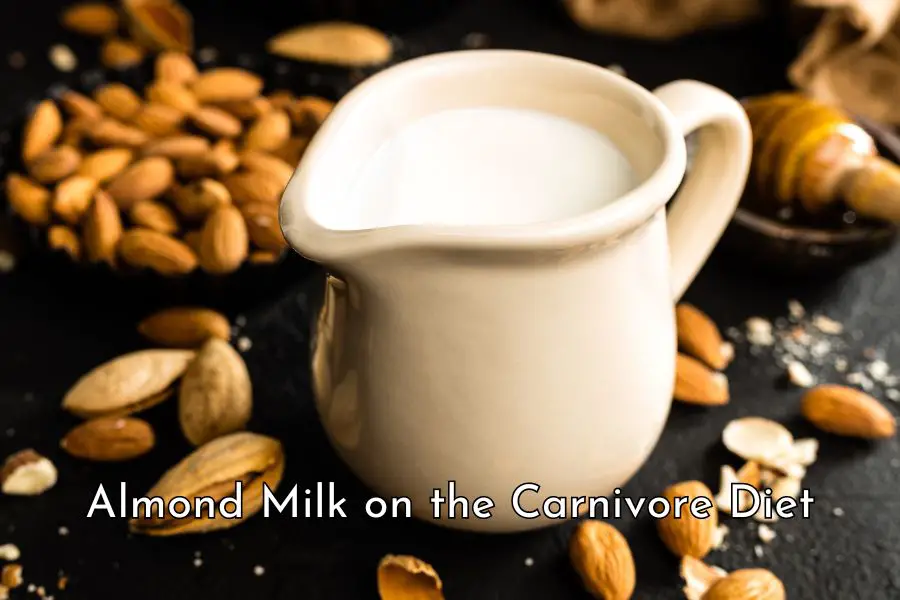In this post, we will explore whether yogurt can be part of the carnivore diet and address related questions concerning its impact on gut health and calcium intake and who should avoid yogurt. Before diving into these aspects, we’ll start by examining the yogurt-making process and its nutritional content.
Table of Contents
- How Is Yogurt Made?
- Nutrition in Yogurt
- Can You Eat Yogurt on the Carnivore Diet?
- Do You Need to Eat Yogurt to Get Enough Calcium?
- Do You Need to Eat Yogurt for Gut Health?
- Potential Reasons to Exclude Yogurt
- What Is the Healthiest Yogurt to Eat?
- Conclusion
How Is Yogurt Made?
Yogurt is a fermented milk product and is made by fermenting milk which involves the conversion of milk sugar (lactose) into lactic acid by the action of bacteria. The basic steps involved in making yogurt are as follows: [1]
- Milk selection: The process begins by selecting the type of milk to be used, such as cow’s milk, goat’s milk, or plant-based milk like soy or almond milk. The milk is typically pasteurized to kill any harmful bacteria and ensure product safety. Milk powder, cream, or stabilizer may also be added to achieve a desirable texture at this stage
- Pasteurization: The milk mixture is pasteurized at 185°F (85°C) for 30 minutes or at 203°F (95°C) for 10 minutes in order to kill off harmful bacteria and denature the whey proteins and allows them to form a more stable gel. The milk is then cooled to a specific temperature (108°F or 42°C) to create an ideal temperature for the starter culture to grow
- Inoculation: A small amount of starter culture contains live bacteria, mainly Lactobacillus bulgaricus and Streptococcus thermophilus is then added to the warm milk. The starter culture is what responsible for the fermentation process. As the bacteria consume lactose, they produce lactic acid which causes the milk proteins to denature and form a gel-like structure, giving yogurt its characteristic texture and thickness
- Incubation: The milk and starter culture mixture is then incubated at a specific temperature, usually around 108°F (42°C). This temperature provides an ideal environment for the bacteria to multiply and convert lactose into lactic acid. The incubation time can range from a few hours to 24 hours or more, depending on the desired consistency and tanginess of the yogurt
- Cooling and flavoring: Once the desired consistency is reached, the yogurt is cooled to stop the fermentation process. Additional ingredients like fruit, flavors, sweeteners, or additives can be added to enhance the taste and texture of the yogurt.
Nutrition in Yogurt
Yogurt made from animal milk such as cow, sheep or goat milk is a nutritious food because it is a rich source of many essential nutrients including: [2, 3, 4, 5, 6, 7, 8, 9]
- Protein. Yogurt is a good source of protein, for example, there are 9 g of protein per 100 g of plain whole milk Greek yogurt. Protein is important for building and repairing tissues, supporting immune function, maintaining muscle mass, and serving as neurotransmitters. Almost every aspect of human physiology involves proteins
- Calcium. Yogurt is a very good source of calcium. There is 111 mg of calcium (11% DV) per 100 g of plain whole milk Greek yogurt. Calcium is a mineral necessary for strong bones and teeth, as well as proper muscle and nerve function
- Vitamin B12. Yogurt is a good source of vitamin B12, for example, there are 0.75 mcg of B12 (31% DV) per 100 g of plain whole milk Greek yogurt. Vitamin B12 is crucial for the formation of healthy red blood cells, maintaining a healthy nervous system, brain function, and energy production
- Phosphorous. Yogurt is a good source of phosphorous, for example, there are 126 mg (18% DV) of phosphorous per 100 g of plain whole milk Greek yogurt. Phosphorus plays several crucial roles in the human body such as forming bones, teeth and DNA, participating in energy metabolism, maintaining proper acid-base balance, and involving cell signaling and communication processes
- Riboflavin (B2). Yogurt is a very good source of riboflavin, for example a 100 g serving of plain whole milk Greek yogurt delivers 0.24 mcg or riboflavin ( 20% DV). Riboflavin (vitamin B2) plays a critical role in energy metabolism, supports healthy skin, eyes, and red blood cells, and acts as an antioxidant
- Zinc. Yogurt is a good source of highly bioavailable zinc. A 100 g serving of plain Greek yogurt contains 0.47 mg (4.5% DV). Zinc is an essential minerals that plays many diverse roles in the human body. It supports immune function, enzymatic reactions, growth, healing, reproductive health, and skin health
- Other vitamins and minerals (e.g. magnesium, potassium, choline, folate, and niacin) in small quantities which are essential for overall health and well-being.
However, it’s important to note that not all yogurt products are created equal. For example, plain whole milk Greek yogurt is made from only milk and culture but some yogurts can be very high in added sugars and contain artificial flavors, preservatives and other additives, which can make them become an unhealthy product.
Can You Eat Yogurt on the Carnivore Diet?
You can eat yogurt on the carnivore diet because yogurt is an animal-sourced food that is very nutrient dense.
As mentioned above, like other animal-sourced food, yogurt is rich in many essential nutrients as well as very affordable, making it a great addition to your carnivore diet if you are not sensitive to dairy.
Yogurt is definitely not a plant-based food, however, there are arguments that, strictly speaking, a carnivore diet means eating only the flesh of other animals, therefore, dairy products and honey are not part of this diet. However, I don’t think we need to a to adhere to this strict definition for the sake of it. Rather, we should include all the food that is considered healthy. Because yogurt is nutrient-dense, highly bioavailable, and free from anti-nutrients, if well tolerated, there is no reason to exclude it.
However, if you don’t enjoy yogurt, it is not necessary to include it in your carnivore diet. Other animal-based foods such as beef, lamb, goat, pork, chicken, fish, and eggs can provide you with all the necessary nutrients without the need for yogurt.
Do You Need to Eat Yogurt to Get Enough Calcium?
Yogurt, like other dairy products, is especially high in calcium. A 100-gram serving of plain whole milk Greek yogurt has 111 grams of calcium, providing 11% of the daily recommended value. If you eat one cup of yogurt, you’ll get nearly 30% of the daily value. However, without yogurt and other dairy products, you still can get sufficient calcium from other food sources such as beef bones, lamb bones, whole fish with bones in, and bone marrows. [10]
For example, by saving the leftover soft bones from making bone broth and eating a small piece a day or eating a teaspoon of ground bone-meal, you’ll certainly get more than the recommended 1 gram of calcium a day. Animal bones are especially rich in calcium as well as phosphorous and magnesium which are the main components of human bones. Many expensive calcium supplements are made from just ground-up animal bones. [11, 12]
If you eat organ meat, bone marrow is another great source of calcium. A 100 gram serving of bone marrow has 340 mg of calcium, 3 times the amount of calcium in yogurt. Our ancestors somehow knew that bone marrow is nutritious, they not only consumed marrow immediately upon procurement but also brought limbs and skulls to their caves and saved them for later consumption. [13, 14]
A great thing about the carnivore diet is the nutrients in its food are highly bioavailable meaning your body can efficiently absorb a greater portion of the nutrients consumed compared to plant-based foods. Accordingly, you may not need to eat as much because, in the absence of anti-nutrients commonly present in plant-based food, your body can absorb a lot more of what it consumes.
Do You Need to Eat Yogurt for Gut Health?
Another reason that people buy and eat yogurt is its touted gut health benefits. Because yogurt contains billions of live bacteria, consuming yogurt is said to improve the diversity of our gut microbiome and improve our digestive health. However, there is a lack of research evidence supporting these claims.
A series of human and animal studies found that consumption of probiotic yogurt did not have any material impact on the composition of the gut microbiota in humans or mice. However, it did influence the way gut bacteria processed polysaccharides. [15]
Polysaccharides are complex carbohydrates made up of long chains of sugar molecules which are primarily come from plant sources such as potatoes, rice, wheat, barley, peas, lentils, fruits and vegetables. Polysaccharides are also present in insects and crustaceans (e.g. crickets, meal worms, insect powders, soft shell crab, and prawn shells) but these are not a common food for most people. [16, 17]
Based on the findings of the aforementioned study, individuals following a primarily plant-based diet may benefit from yogurt consumption due to its effect on polysaccharide metabolism. However, for those on a carnivore diet, whose intake of plant-based foods and polysaccharides is either nil or negligible, there is currently no evidence to suggest that consuming yogurt would be beneficial for their gut health.
Potential Reasons to Exclude Yogurt
In addition to those who are sensitive to dairy products, if you are using the carnivore diet to heal chronic diseases, it is best to avoid all dairy products including yogurt and focus on consuming only best quality animal-sourced food like fatty beef, lamb, and goat and organ meat.
Although there is a lack of evidence linking dairy and inflammation, it is worth noting that the International Center for Medical Nutritional Intervention based in Hungary has successfully treated thousands of patients using a high-fat animal-based diet and their approach advises against the inclusion of dairy products.
Dr. Csaba Tóth, one of the researchers at the center, explains that even in minimal quantities, milk proteins can potentially trigger inflammatory reactions through the action of dendritic cells, which are part of the immune system. [18]
The center’s protocol recommends patients to eat only good quality animal-based foods including red and fatty meat, fat and offal (e.g. brain, liver, kidney, and marrow) from four-legged animals. Considering their successful treatment outcomes for thousands of patients including those with chronic conditions like diabetes, autoimmune diseases, cancer and intestinal permeability, their recommendations carry weight and should be taken into consideration.
What Is the Healthiest Yogurt to Eat?
Like other food options, the healthiest yogurt is the one that is made from high quality ingredients and minimally processed. Below are some criteria for choosing a healthy yogurt:
- Plain, unsweetened yogurt: Opt for plain yogurt without added sugars or artificial sweeteners. This allows you to control the amount of sweetener and what type of sweetener you add, if desired, and reduces overall sugar intake
- Grass-fed or organic options: Consider selecting organic yogurt or yogurt made from milk sourced from grass-fed ruminants. Organic options are free from synthetic pesticides and hormones, while grass-fed milk may have a slightly better nutrient profile
- Probiotic-rich yogurt: Look for yogurt that contains lots of live and active cultures as these types of yogurt are likely to have a very long fermentation period which gives the friendly bacteria a long time to ‘pre-digest’ the milk for you and improve your body’s absorption of the nutrients in milk
- Additive-free: Choose yogurt with no or minimal additives, such as artificial colors, flavors, or preservatives.
In my opinion, the best yogurt is plain whole milk yogurt made from full cream grass-fed milk, without any additives. If you have time, consider making 24-hour yogurt at home, especially if you are sensitive to dairy. The extended fermentation period results in a yogurt that is nearly lactose-free, making it a great option for those who have issues with consuming a significant quantity of lactose.
Conclusion
You can eat yogurt on the carnivore diet if you enjoy it and tolerate dairy because it is rich in many essential nutrients. However, if you don’t enjoy it, you don’t need to make it part of your diet because you can get all the nutrients that meet your body’s functioning needs by eating other animal-sourced food such as beef, lamb, pork, chicken, pork, eggs, seafood and organ meat.
If you decide to include yogurt, the healthiest option is plain whole milk yogurt made solely from milk and culture, without any additives. Making your own 24-hour yogurt using high-quality milk is an even better choice, if feasible.
Other posts you might be interested in:
Can You Have Mayonnaise on the Carnivore Diet?
Is Diet Coke Okay on the Carnivore Diet?
Are Eggs Okay on the Carnivore Diet?
Can You Eat Avocados on the Carnivore Diet?
Is It Okay to Eat Chicken on the Carnivore Diet?
Can You Drink Milk on the Carnivore Diet?
Do You Need to Eat Fish on the Carnivore Diet?
Is It Okay to Eat Bacon Every Day on the Carnivore Diet?
Is Cheese Okay on the Carnivore Diet?
Who Might Benefit from a Strict Carnivore Diet?
Disclaimer: The information in this post is for reference purposes only and is not intended to constitute or replace professional medical advice. Please consult a qualified medical professional before making any changes to your diet or lifestyle. Please check out our disclaimer for more detail.





